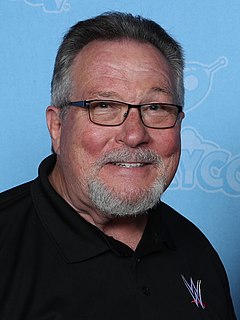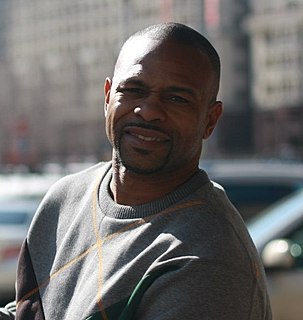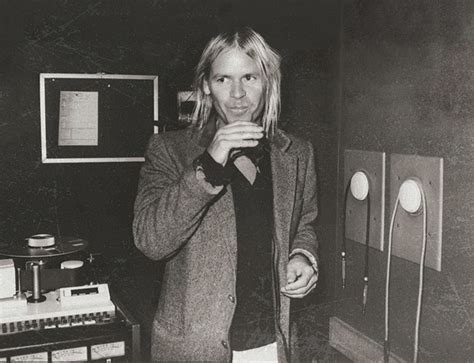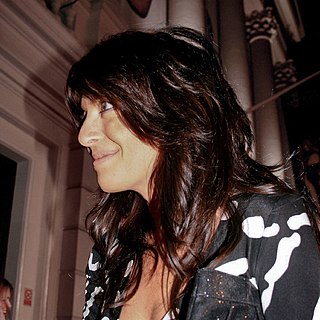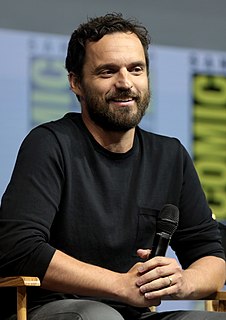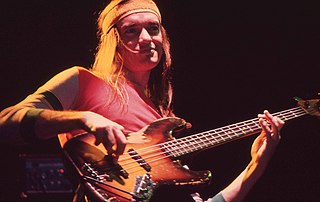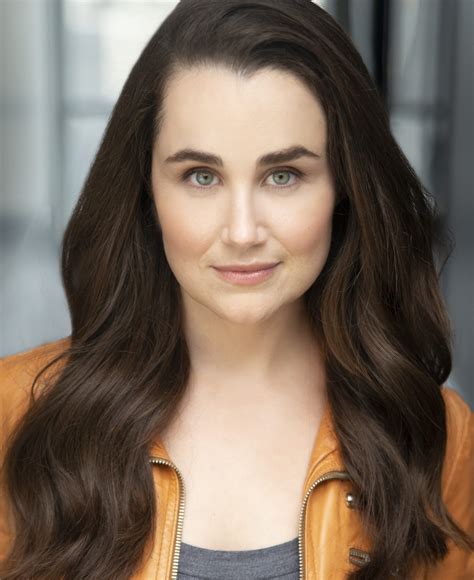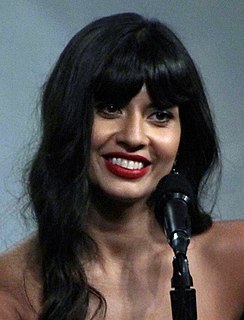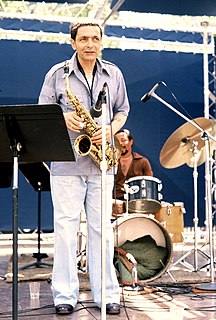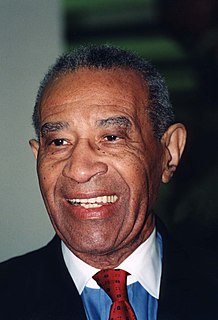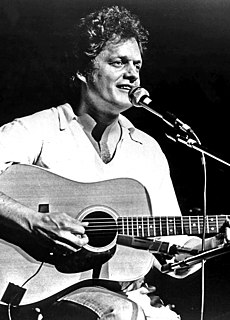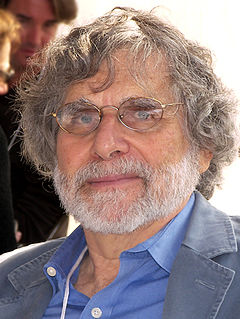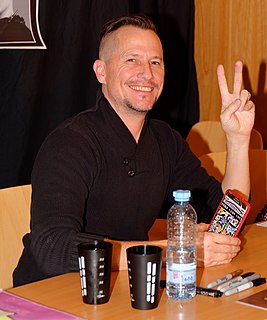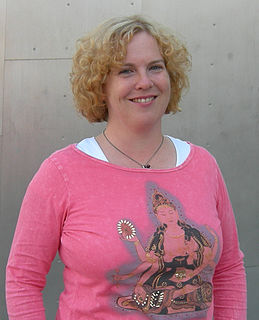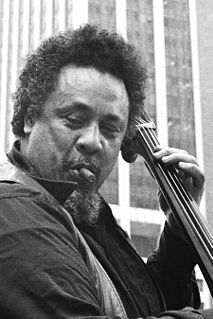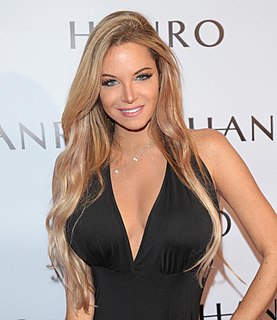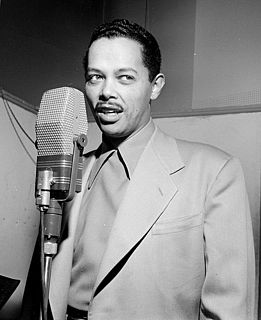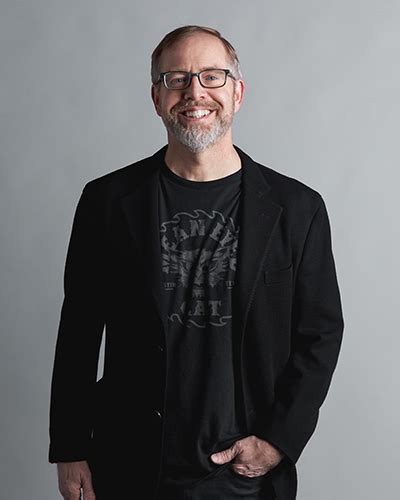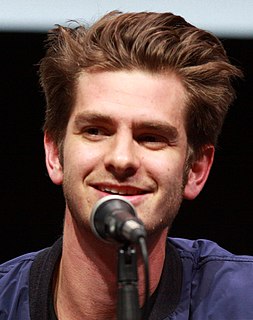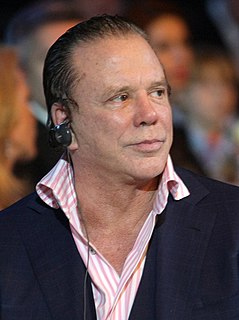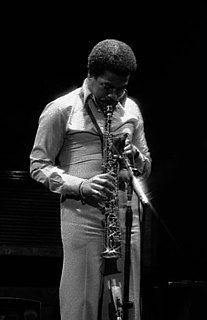Top 299 Parker Quotes & Sayings - Page 5
Explore popular Parker quotes.
Last updated on April 21, 2025.
When I first went to Georgia Championship Wrestling, the promoter at the time Jim Barnett brought in Robert Fuller, who later became Colonel Rob Parker in WCW, as the booker. Everybody has their own style and way of doing things, and I was just not impressed with Robert Fuller. As a booker. As a talent he was fine.
The first day of the shoot, I had been in my trailer and came out dressed as Peter Parker in his slightly daggy corduroy jacket with his camera around his neck. Almost instantly, 500 or more people just stopped and started to watch us. They were calling out my name, calling out, 'Peter' or 'Spidey'.
I’ve worked with such legendary guitar players as Allan Holdsworth, Ronnie Montrose, Eric Clapton, Lowell George and Steve Vai, but none of them come close to having Ed’s [Eddie Van Halen's] fantastic combination of chops and musicianship. I rank him along with Charlie Parker and Art Tatum as one of the three greatest musicians of my lifetime. Unfortunately, I don’t think Ed puts himself in that class.
Yes, of course I love little Sarah Jessica Parker. I love the fact that when she accepts awards, she thanks everyone she's ever met and inanimate objects that have 'been kind to her.' And I love the fact that she hasn't had a flesh-coloured mole removed from her forehead (I'm not making it up; have a closer look next time she's on the screen).
I listened to classical music. I listened to jazz. I listened to everything. And I started becoming interested in the sounds of jazz. And I went to a concert of Jazz at the Philharmonic when we lived in Omaha, Nebraska, and I saw Charlie Parker play and Billie Holiday sing and Lester Young play, and that did it. I said, 'That's what I want to do.'
People ask me, 'Did you ever want to be a live-action Peter Parker?' Are you kidding me? These actors live in a gym and wear really uncomfortable tights for 14 hours a day. And it's not like you're doing some very fun acting. Shooting is a real drag. Then you do press for five months? I don't think I could get it.
I'm not a star. I'll never be a Frank Sinatra or Elvis Presley or a Ray Charles. I'm just an imitator, man. I'm doing a very bad imitation on the bass of Jerry Jemmott, Bernard Odum, Jimmy Fielder, Jimmy Blanton, Igor Stravinsky, Jimi Hendrix, John Coltrane, James Brown, Charlie Parker... the cats, man. I'm just backing up the cats.
I always felt that I was born in the wrong era. I wanted to be friends with John Garfield, for instance. He was one of the only actors that refused to testify in front of the House Un-American Activities Committee back when the Hollywood Ten blacklist was happening in the McCarthy period. I wish I could've been friends with Charlie Parker and played with him. That's my period. I feel real close to the '40s - and actually I was born in '37, so I was a kid singing on the radio in the '40s. But I always dreamed of going to big cities.
As far as superhero stories, what's appealing is of course that aspect of wish fulfillment. I mean, you start out reading them as a kid, and a couple things jump out at you - there are heroes out there, and you wish you could run into a phone booth and change your life, or be like Peter Parker and put on a mask and become a hero.
He was Jimi Hendrix! He didn't sound like anybody else but himself. He was like Charlie Parker in his way of playing, he played well, he was a person that made waves. When you heard Jimi Hendrix you knew it was Jimi Hendrix, he introduced himself in his instrument... You know, many radio stations play records and a lot of the times they don't call out the names who you just listened to, but when they play Jimi Hendrix, you don't have to tell me, [you know] it's Jimi Hendrix.
Are we, as humans, gaining any insight on how to talk about ourselves and how something as abstract as a Charlie Parker record gets us into a dialogue about our emotions and our thoughts? Sometimes we lose sight that the music has a wider context. So I want to continue those dialogues. Those are the things I want to foster.
At that time, 73 and 74, I became aware that there were a number of us making instruments. Max Eastley was a good friend and he was making instruments, Paul Burwell and I were making instruments, Evan Parker was making instruments, and we knew Hugh Davies, who was a real pioneer of these amplified instruments.
Black music has always known, and not been afraid to acknowledge just how high the stakes of Black thought are. To summarize the final soliloquy of Clay, the protagonist in LeRoi Jones’ (aka Amiri Baraka’s) play Dutchman. You’d better be glad Charlie Parker could play him some horn and Bessie Smith could sing, because if they didn’t make music they might murder you. One would be hard pressed to find another group of people on this planet whose music is a surrogate for murder. One would be hard pressed to another group of people on this planet whose life is a proxy for death.
...Mr. Wodehouse is a prose stylist of such startling talent that Frankie nearly skipped around with glee when she first read some of his phrases. Until her discovery of Something Fresh on the top shelf of Ruth's bookshelf one bored summer morning, Frankie's leisure reading had consister primarily of paperback mysteries she found on the spinning racks at the public library down the block from her house, and the short stories of Dorothy Parker. Wodehouse's jubilant wordplay bore itself into her synapses like a worm into a fresh ear of corn.
Being a nerd, which is to say going too far and caring too much about a subject, is the best way to make friends I know. For me, the spark that turns an acquaintance into a friend has usually been kindled by some shared enthusiasm . . . At fifteen, I couldn't say two words about the weather or how I was doing, but I could come up with a paragraph or two about the album Charlie Parker with Strings. In high school, I made the first real friends I ever had because one of them came up to me at lunch and started talking about the Cure.
The way so many musicians slavishly imitated Coltrane, that's the way it was with Charlie Parker - only even more so, if that can be imagined. Everyone that I knew changed totally. But they took the worst things of his playing-that harsh sound; it just didn't come off the way they did it. The way he did it was great, Their way wasn't good at all. I just would listen to 'em, say: 'That's a Bird imitator', and that would be it; I would never care to listen to them again.
I used to take musical instruments home from elementary school. There were some music teachers there - we all learned instruments. A lot of us got started in public schools. Charlie Parker and Bud Powell, for example. But now there are no more music teachers in public elementary schools. It's like (Senator) Moynihan said, 'benign neglect.' Just let it rot and fester.
[Trey Parker and Matt Stone]called me one Saturday morning and said, "Can you do an impression of Conan O'Brien?" And I said, "I don't know." Because that was really... He hadn't been on the air that long, and to be honest, I hadn't watched much of him at that point. So I went to Santa Monica to their studio and said, "Well, what does he sound like?" They said, "Well, just try it one time. Read the copy." And I read the copy one time, and they went, "Okay, that's fine. Thanks a lot, that'll do. That's perfect."
When I started this song I was still thirty-three The age that Mozart died and sweet Jesus was set free Keats and Shelley too soon finished, Charley Parker would be And I fantasized some tragedy'd be soon curtailing me Well just today I had my birthday I made it thirty-four Mere mortal, not immortal, not star-crossed anymore I've got this problem with my aging I no longer can ignore A tame and toothless tabby can't produce a lion's roar.
I wish - I wish instead of just recommending these books, I could set them down at your doorstep. The collected stories of John Updike, the second volume of T.C. Boyle's collected stories, and Stanley Crouch's book about the rise and times of our genius saxophone player Charlie Parker. These are deep books, books that you can get lost in.
For throughout history, you can read the stories of women who - against all the odds - got being a woman right, but ended up being compromised, unhappy, hobbled or ruined, because all around them, society was still wrong. Show a girl a pioneering hero - Sylvia Plath, Dorothy Parker, Frida Kahlo, Cleopatra, Boudicca, Joan of Arc - and you also, more often than not, show a girl a woman who was eventually crushed.
To some extent, the idea that rock 'n roll used to have this sort of free antediluvian identity, frolicking in the 1950s with Elvis or something, is totally wrong. It's insane. Elvis' relationship with Colonel Parker, his manager, was one of the most possibly corrupt, certainly lucrative, and intense business partnerships ever in rock n' roll.
I, myself, came to enjoy the players who didn't only just swing but who invented new rhythmic patterns, along with new melodic concepts. And those people are: Art Tatum, Bud Powell, Max Roach, Sonny Rollins, Lester Young, Dizzy Gillespie and Charles Parker, who is the greatest genius of all to me because he changed the whole era around.
Eventually as a teenager, I was pulled up on stage by James Brown's saxophone player, Maceo Parker, during one of his concerts and scatted on his stage for 20 minutes. After I was done, Maceo's bass player got down on one knee as if he were proposing, took a string off of his bass guitar and coiled it up around my ring finger. He hushed the crowd and said into the microphone, "Wendy, from this day forward you are married to music. You have a gift from God. You must devote your life to using this gift or else you will deprive the world of something so special." I got the chills.
[Charlie Parker] was kind of a sponge and intrigued by it all.That's similar to what Phil [Woods] told me about Bird, too. Like he was into cooking. He was just into a lot of things. Yeah, it's about dealing with bebop and jazz and Trane [John Coltrain] and post-Trane and knowing the history. But you've got to live. You have to experience things. Know something in this world. So it was a very deep education about what it means to try and be an artist.
At Warby Parker, we ask ourselves a number of questions when deciding whether or not to partner up with a designer, or a nonprofit or brand. Is the potential collaboration new? Is it unexpected? Will it result in something worth talking about over dinner? Will it do good? Will it introduce us to a new audience?
A. E. Maxwell wrote one of the smartest, most consistent PI series in recent memory. Big plots, great villains, and a kickass private eye with plenty of humanity. The toughness of Robert B. Parker's early Spenser novels blended with the wry humor and scope of Ross Thomas. Wholly original, endlessly entertaining. The books of A. E. Maxwell are a forgotten treasure.
Mogi: Greg Parker left the hideout a while ago and bought a large amount of food. He's heading back to the hideout now. And I've been able to ascertain that he purchased multiple boxes of the same brand chocolate. Aizowa: That clinches it. Ide: It feels a little strange that chocolate is the deciding factor here.
Bop began with Jazz but one afternoon somewhere on a sidewalk maybe 1939, 1940, Dizzy Gillespie or Charlie Parker or Thelonious Monk was walking past a men's clothing store on 42nd Street or South Main in L.A. and from a loudspeaker they suddenly heard a wild impossible mistake in jazz that could only have been heard inside their own imaginary head, and that is a new art. Bop.
And what of my extended family-birds, beasts, and reptiles? They too have drowned. Every single thing I value in life has been destroyed. And I am allowed no explanation? I am to suffer hell without any account from heaven? In that case, what is the purpose of reason, Richard Parker? Is it no more than to shine at practicalities-the getting of food, clothing and shelter? Why can't reason give greater answers? Why can we throw a question further than we can pull in an answer? Why such a vast net if there's so little fish to catch? (pg. 98)
I've always appreciated people like Graham Parker or Loudon Wainwright III, who spend their entire lives writing songs and working their asses off just to have complete artistic freedom. They're just sharing their lives with you through their music. That's the same kind of work that I'm trying to do, in my own weird way.
Percy France told me, similarly, he and Bird used to hang out. They were good buddies. And he said, "Man, we'd just walk through town, sometimes with our horns. And we'd walk by past an Irish bar. And you'd stand outside and check out the music. And Bird would go in and sit in with these traditional Irish musicians. Then we'd past a Greek restaurant and we'd hear that. And Charles "Bird" Parker would go sit in with those guys. He was just listening to everything, reacting to everything.
I laughed. It was just like Owen to make excuses for someone else’s shortcomings. Even fictional characters. Owen found my tendency to speak my mind “refreshingly honest,” and hailed Marc’s temper as “a deep protective instinct.” He said Ethan “thoroughly enjoyed life,” and that Parker “really knew how to have a good time.” According to Owen, we were all doing just fine, and all was right with the world.
In those days before hearing Charlie Parker and Dizzy, and before learning of the so-called bebop era--by the way, I have some thoughts about that word, "bebop"--my first jazz hero ever, jazz improvisor hero, was Lester Young. I was a big "Lester Young-oholic," and all of my buddies were Lester Young-oholics. We'd get together and dissect, analyze, discuss, and listen to Lester Young's solos for hours and hours and hours. He was our god.
A few hours after the news broke about the death of crime writer Donald E. Westlake, a newspaper asked me to write a tribute. In short order I did so, calling attention to his decades-long career, both under his own name and that of his primary alter ego, Richard Stark, who introduced the unsentimental antihero-heister Parker to the literary canon.
Admittedly, I do have several bones... whole war fields full of bones, in fact... to pick with organised religion of whatever stripe. This should be seen as a critique of purely temporal agencies who have, to my mind, erected more obstacles between whatever notion of spirituality and Godhead one subscribes to than they have opened doors. To me, the difference between Godhead and the Church is the difference between Elvis and Colonel Parker... although that conjures images of God dying on the toilet, which is not what I meant at all.
There's a steady forward march of a creative process that some of us stay with and don't give up - that should be an admirable thing - from Louis Armstrong to Charlie Parker to Miles to Ornette and some people who are not even known today - some kids coming up - people who are out to change the world.
It also helps that what Dan Slott is doing with Peter Parker in the comics has elevated him to something else, so that Miles Morales at the moment is the more traditional Spider-Man figure in the universe: the high school student trying to balance high school and superheroics, and he can't catch a break. That was Peter's role, but it's not his role anymore, and it's Miles' role. That was given to me, and it's pretty cool.
The other thing that I got back then - the Parker novels have never had much of anything to do with race. There have been a few black characters here and there, but the first batch of books back then, I got a lot of letters from urban black guys in their 20s, 30s, 40s. What were they seeing that they were reacting to? And I think I finally figured it out - at that time, they were guys who felt very excluded from society, that they had been rejected by the greater American world.
By the latter part of high school, by the middle of junior year in high school, Jay Rodriguez played me some Irakere records that that Paquito [D'Rivera] was on. And he also played me and our friend, Curtis Haywood, some Phil Woods records. And when I heard Phil, I just about lost my mind. I was playing the Charlie Parker Omnibook as part of my lessons. This was the '80s. There was no YouTube and all that. And we had three or four jazz records at that point.
There was a time when I was offered two episodes of 'Alias,' that show with Jennifer Garner which J.J. Abrams did back before he became the mega producer and super successful director. I instead decided I wanted to play this family guy on a short-lived UPN 'Second Time Around.' It starred Boris Kodjoe and Nicole Ari Parker.
Actually, when I saw it in USA Today, I just, Candace Parker was, we were warming up in practice and she was underneath the basket shooting and I just said, 'Hey Candace! I enjoyed what I read in the paper today about your decision [to stay].' She just started laughing and I did too. So I haven't discussed it with her.

